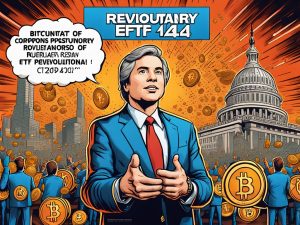JPMorgan CEO Jamie Dimon Expresses Opposition to Crypto
JPMorgan Chase chair and CEO Jamie Dimon stated that if he had the authority, he would attempt to shut down cryptocurrencies. During a Senate Banking Committee hearing, Dimon responded to Massachusetts Senator Elizabeth Warren’s claim that North Korea used crypto proceeds to fund its missile program. Dimon has long been critical of digital assets, associating them with criminals and tax evasion. He referred to cryptocurrencies as “decentralized Ponzi schemes” and called Bitcoin a “fraud.”
Warren Challenges CEOs on AML Regulations for Crypto Firms
Senator Warren questioned the CEOs of major banks about subjecting crypto firms to Anti-Money Laundering (AML) rules similar to those imposed on traditional banks. All CEOs agreed that crypto firms should be held to these regulations. However, a spokesperson for the CEDAR Innovation Foundation argued that Warren’s claims demonstrated a lack of understanding of blockchain technology. They emphasized that crypto is not more conducive to illicit finance than fiat currency.
Warren’s Opposition to Crypto
Senator Warren has been an outspoken critic of cryptocurrencies in the U.S. government, often linking them to terrorism and advocating for legislation against their illicit use. Following the Hamas attack on Israel, Warren gained support from fellow lawmakers in her efforts to address the role of crypto in financing terrorism.
Hot Take: Dimon’s Anti-Crypto Stance Reflects Traditional Financial System’s Fear
JPMorgan CEO Jamie Dimon’s strong opposition to cryptocurrencies reflects the fear among traditional financial institutions regarding the disruptive potential of decentralized finance and blockchain technology. His comments echo sentiments shared by other CEOs during the Senate hearing, highlighting their recognition of crypto as a direct threat to the established financial system. While critics like Dimon may perceive crypto as a vehicle for illicit activities, proponents argue that it offers promising possibilities and a more inclusive financial landscape.





 By
By
 By
By
 By
By
 By
By
 By
By
 By
By